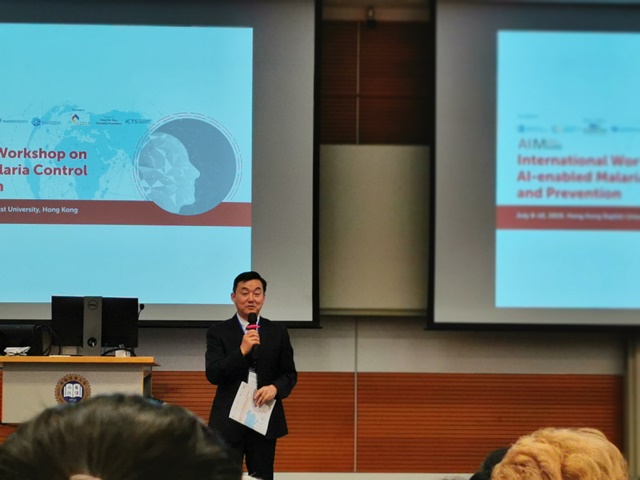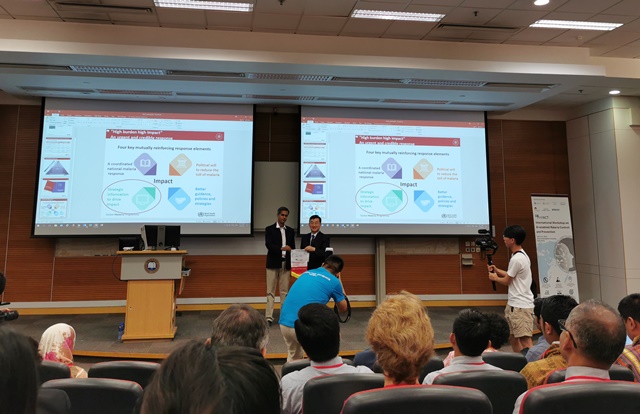International Workshop on AI-enabled Malaria Control and Prevention
In order to carry out research on the role of computer science in malaria elimination, promote its application in malaria surveillance, and optimize upgrade monitoring and early warning products, the International Workshop on AI-enabled Malaria Control and Prevention was held in Hong Kong on July 8-10. Invited by the organizer, Hong Kong Baptist University, a group of 6 people from the National Institute of Parasitic Diseases (NIPD), Chinese Center for Disease Control and Prevention attended the workshop. The seminar attracted participants from diverse regions, including representatives from the Mekong Malaria Elimination Programme, WHO, Southeast Asia Region, WHO, as well as computing scientists, health experts working in Cambodia, Thailand, Laos, Vietnam, Sri Lanka, India, Bhutan and local scholars in Hong Kong. More than 40 people attended the workshop. At the meeting, the World Health Organization and the Hong Kong Baptist University led the opening speech, Professor Liu Jiming of the Baptist University, Director Zhou Xiaonong of NIPD and WHO officials presented the progress and application of artificial intelligence technology, the progress of malaria elimination in China, and the elimination of malaria in Southeast Asia, respectively. All the participants conducted in-depth exchanges on the application prospects, challenges and countermeasures of artificial intelligence in malaria elimination at the technical and policy levels. Professor Liu Jiming of Hong Kong Baptist University made a summary of the meeting. He pointed out that there are still many challenges in the application of artificial intelligence in disease prevention and control in the future. In collaboration with NIPD and other agencies with interest, Baptist University will propose personalized solutions according to the specific needs of different countries and regions, and expects AIM2.0 to be available in the near future.
On 8 July, under the witness of all the participants, NIPD and the Hong Kong Baptist University signed a cooperation agreement on Joint Research Laboratory for Intelligent Diseases Control and Prevention Cooperation Agreement. The two sides agree to further strengthen cooperation in terms of big data analysis, modeling technology, early-warning and prediction, evaluation and optimization via carrying out bilateral projects, conducting training exercise as well as information exchange. Both parties committed to promote the establishment of a large data platform for the development of parasitic diseases in China and the prevention and control of tropical diseases.


Background information
In order to give full play to the application of information technology in the field of public health, NIPD and Hong Kong Baptist University has established a cooperative relationship with parasitic diseases many years ago. The two sides have carried out malaria elimination phase case monitoring, early warning and risk assessment techniques in the border areas of China and Burma. Cooperative development, the artificial intelligence malaria prediction and evaluation model AIM1.0 has been developed. Field application shows that the model can be applied to local malaria risk assessment, monitoring and early warning, and sentinel selection decision, which has a good application prospect.
